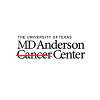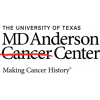The Institute Associate Scientist III contributes to the development and characterization of state-of-the-art cancer models while participating in cross-functional research to identify and validate novel biomarkers and patient responder hypotheses, enable disease modeling and translating these findings to support the development of novel oncology therapeutic agents to benefit patients.
KEY FUNCTIONS :
independently assist with acquisition, collection and processing of fresh tissue from preclinical models and patient samples for molecular characterization, histopathology, ex vivo cell culture, in vivo implantation and / or flow cytometry analysis.
independently perform advanced tissue culture techniques including viral transduction, electroporation, and CRISPR-Cas9 engineering of cell lines and organoids to develop novel disease models for evaluation of therapeutics.
leads the translation between in vitro / ex vivo and in vivo models, including dosing, imaging survival, non-survival surgeries, and monitoring of in vivo models.
independently conduct laboratory experiments to support translational biology programs and characterize tumor models to advance therapeutics into clinical development.
assist with the development and implementation of novel histology assays and established protein, DNA and RNA-based technologies on in vivo and ex vivo samples to support translational biomarker activities and to advance disease model characterization.
prepare, and present data in project team and other internal meetings as needed.
CORE COMPETENCIES
Independent Contributor) : Set high standards of performance; pursue goals with energy and persistence; drive for results and achievement.
- Use standards set by management. Take ownership for actions. Continually meet department goals.
- Demonstrate a personal sense of urgency in getting results. Use personal and management standards to complete assignments.
- Independent Contributor) : Demonstrate technical proficiency required to do the job; possess up-to-date knowledge in the profession;
provide technical expertise to others.
- Apply basic technical / functional knowledge to complete work. Meet essential position requirements.
- Seek experiences and knowledge in technical / functional areas to gain additional expertise. Troubleshoot systems / processes effectively.
Independent Contributor) : Gather relevant information systematically; break down problems into simple components; make sound decisions.
- Recognize simple cause and effect relationships. Diagnose problems by breaking them down into simple tasks or activities.
- Identify relationships among a few parts of a problem. Scan own knowledge and experience base to determine potential solutions.
- Independent Contributor) : Encourage collaboration and input from all team members; value the contributions of all team members, and those beyond team;
balance individual and team goals.
- Support and show respect to team members. Recognize how individual actions affect the team.
- Model team qualities,
EDUCAITON :
Required : Bachelor's degree in Biology, Biochemistry, Molecular Biology, Cell Biology, Enzymology, Pharmacology, Chemistry or related field.
EXPERIENCE :
Required : Three years of relevant research experience in lab. With preferred degree, one year of required experience.
Preferred : Master's degree in a related field, such as biology or molecular biology.
Preferred :
CRISPR, and cDNAs) and pharmacological () approaches to study mechanisms of response and resistance, utilizing state of the art molecular biology and biochemistry methods and assays essential to drive projects, is a plus.
ability to interpret results and contribute to the design of follow-up experiments, and troubleshooting issues with assay performance are expected.
highly self-motivated individual with outstanding communication and organizational skills, and the ability to effectively present results and conclusions to co-workers, collaborators, and managers.
and demonstrated ability for critical thinking and problem solving is a must.
10.A collaborative attitude is essential for this position.
It is the policy of The University of Texas MD Anderson Cancer Center to provide equal employment opportunity without regard to race, color, religion, age, national origin, sex, gender, sexual orientation, gender identity / expression, disability, protected veteran status, genetic information, or any other basis protected by institutional policy or by federal, state or local laws unless such distinction is required by law.





